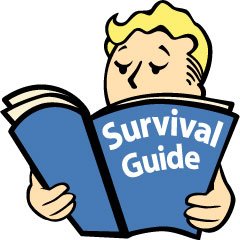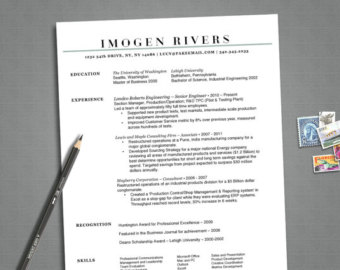MBA Survival Guide
Post Views 2How to navigate your way through business school. We’ve got everything you need to know to get from day one to graduation with your sanity intact.
You stayed up late memorizing geometric equations you last saw in the 10th grade to ace the GMATs. You burned hours at work crafting essays about “creating meaningful change in your organization” in the hopes that some business school would actually believe your story. That was just a warm-up. The toughest part is about to begin. B-school will include the best and worst of times, and it will unquestionably be two of the most important years of your life.
The first thing to remember is that you will be pulled in many directions while at school. Primarily, you will find yourself torn between four major areas (in no particular order):
> Academics
> Recruiting and networking
> Co-curricular activities
> Social life
These are all fundamental aspects of business school, but they assume different levels of importance at different times during your two-year cycle. If you try to do everything at once, you will likely get no sleep, ruin your social life, and feel overwhelmed most of the time, so it pays to figure out what to focus on when and how to manage your time.
Effective time management is critical to your success (and sanity) so make sure you learn how to manage your time well. Buy a PDA (that’s personal digital assistant for you neophytes — the Palm Vx is the coolest), use a planner, or write on little yellow stickies and paste them all over your walls — whatever works.
The business school experience is an exercise in the types of trade-offs that you will one day face as a corporate bigwig or the founder of the next hot dot-com. In evaluating these trade-offs, try to do the things you want to do, rather than just what you think you should be doing. Take a step back from your hectic routine for a quick check — ask yourself if you are happy with what you are doing and how you are spending your time. If not, make the necessary adjustments. At the end of the day, you’ll realize that it probably matters very little if you go to yet another consulting company’s cocktail party in order to put in more face time with the managing director from the Chicago office.
The bottom line: Evaluate where you want to focus your time and energy, and pursue those activities.
ACADEMICS
This is truly the most formidable and, at times, most engaging aspect of business school. Go into your classes with an open mind. Realize that you are in school to learn from both your professors and your fellow classmates. Instead of showing everyone how much you know, practice the fine art of humility. Focus on the areas that you are most unfamiliar with and challenge yourself to obtain a working knowledge of that material. And take the time to get to know your professors — they can be wonderful sources of information as well as excellent networking resources.
Teamwork
For the most part, you will be given more work than you could possibly handle on your own. However, there are many times when you will have to work in a team. Most schools assign students to teams of four to six people. They try to put a diverse set of people onto each team (at least one woman, one international student, etc.). Teams are generally assigned prior to your arrival at school. Believe it or not, at some large schools, they actually use linear programming models for team assignments to ensure that people of different backgrounds are put on the same team! Most schools have retreats or meetings during orientation, and this is when you’ll meet your team members for the first time. You play a lot of “touchy-feely” teamwork-building games, and lay down guidelines and a mission statement for the year. Don’t worry, no team actually sticks to its mission statement, which tends to be full of clichéd, hackneyed phrases like, “We promise to cooperate and air out any grievances as adults.” If you don’t like your team at first, don’t worry — you’ll figure out how to make it work.
Learn to leverage your team, and distribute work according to people’s relative skill levels. Work with different people on your team and on a variety of projects. If you do the accounting homework one week, volunteer to write up marketing the next week. Not only does this diversify your knowledge base, it also minimizes the boredom and drudgery of doing the same thing over and over again (after all, you’ll get more than your share of that once you’re back in the working world).
Get to know your teammates well, understand their time and personal constraints, set expectations early, and contribute as much as possible. Working with your team can be the most valuable part of your B-school experience, so give it the time and energy it deserves.
Public Speaking 101
Learn the art of effective public speaking. You will definitely have to participate in the classroom at some point in your two-year stint, and you’ll want to be prepared for those potentially harrowing moments.
In particular, if you attend a school that uses the case-based method of studying, you will be subject to the infamous “cold call” — a spontaneous request to answer a question or analyze a case. When called on to begin a case discussion, take a deep breath and provide a concise summary of the problem at hand. The key is to provide insight, not to merely repeat what has already been stated. Your MBA classmates may be the most intellectually formidable group you will ever face, so if you make a controversial statement, have plenty of data to back up your claim. And if you just don’t know, don’t be afraid to say so — not only it is likely that others don’t know either, but those who do have the answer will jump in.
Set Goals
Establish your own academic objectives, and don’t be driven by what you think people expect your grades to be. Recruiters know how difficult it is to get into business school, and some schools either issue no grades or have a nondisclosure policy. This is meant to encourage cooperation in a highly competitive, type-A environment, and can foster true mutual exchange.
Keep in mind, though, that at schools where this is not the case, grades often take on a much more significant role. That doesn’t mean you should focus on academics to the exclusion of everything else, but you should be sure to evaluate the standards of the industry and the companies you’re interested in and keep your grades up accordingly.
Course Selection
One strategy that works for many students is to work hard on academics the first semester, and progressively less in the following semesters as recruiting takes on more importance. Once you have secured the job of your dreams, take a combination of classes — those you think you’ll enjoy and those you think will be important to your long-term professional development.
If you attend a school where you are allowed to waive some core classes or take placement exams, then by all means do so. There are two schools of thoughts on this: Some say that by waiving out of courses, you miss out on getting to know your classmates and the inside jokes in core classes; the flip side is that you can take much more interesting classes earlier on, fulfill major requirements sooner, and be in smaller sections. You may find that you appreciate the flexibility of having fulfilled academic requirements in the first year to focus on recruiting in your second year. In addition, don’t believe anyone who says you can’t take a particular class or you have to have a specific major. Fight tooth-and-nail to take the classes you want, and when it comes down to it, begging and pleading doesn’t hurt either. After all, tenacity is a good quality in the business world.
On a tangential though not insignificant note, schools take violations of the ethics code very seriously. You didn’t work this hard to get into school only to be asked to leave for plagiarism or some other such violation. Read the ethics code and take it seriously — ignorance is not an excuse.
The bottom line:The lessons you learned in kindergarten still apply: Learn from others, be a team player, share, and make sure you have “playtime” and “naptime” in addition to learning the building blocks of business.
RECRUITING AND NETWORKING
You may have mortgaged your life on the pretense of learning in the classroom, but a huge focus of B-school is the recruiting process. Recruiting is akin to riding a roller coaster; it’s over before you know it, but the highs and lows you experience during the process are intense. It consists of attending presentations, being wined and dined by companies, sending out resumés, researching companies on your own, and interviewing for jobs.
Where and When
Recruiting typically takes place in the early spring for first-years, who are searching for summer internships. In the early fall, second-years are interviewing for permanent positions. Thus, the second and third semesters of business school are the most recruiting-intensive (so make sure the suits are dry-cleaned and the shirts are pressed during that time). If you’re planning a nontraditional career — working for a small start-up, starting your own company, or venturing into the nonprofit world, for example — you can pretty much ignore the above timetable. Your job search will be less structured and require a lot of personal planning and initiative. You’ll also have more time since most start-ups tend to recruit in the spring.
Fall
For everyone else, get to know the career planning offices well, and understand recruiting schedules and policies (open, closed, drop-in, etc.). Typically, recruiters are not allowed to interview first-years on campus in the fall semester, but can hold informal meetings, receptions, and “get to know you” sessions. Don’t be fooled: These are not purely social events. Recruiters are checking for “fit” issues here — do you seem relaxed, are you too aggressive, are you too shy, etc. In the early fall, many firms organize a Day on the Job that allows you to visit the office and observe the typical day for, say, an investment banker. Between late November and late December, you either mail a cover letter and resumé directly to the firm (and maybe even the office) you are interested in, or you may just drop your resumé in a big pile that the career office mails to the firm. In either case, you should be prepared for a veritable onslaught of recruiters as soon as you come back for your second semester.
Fall is also the time to do as much research as possible on the industries and companies you want to work for — especially if you plan to enter a traditional field like investment banking or consulting. Great sources for information are second-year students. They’ve already gone through the recruiting process and can offer invaluable tips on the companies and tricks for acing the interviews.
Spring
Recruiters come back to campus in the early spring to interview first-years for summer internships. Depending on the firm, companies either have an “open” or “closed” schedule. A closed schedule means firms choose candidates based on resumés and invite students to interview with them. With an open schedule, anyone can interview, and you don’t have to be preselected. To make things more complicated, firms can also have some slots for open interviewing, and keep other slots reserved for closed interviews.
Many schools reserve one week in the early spring that is dedicated exclusively to interviewing, when there are no scheduled classes. But don’t view this as vacation time — the recruiting process can be more hectic than all your classes combined. Most firms have from one to four rounds of interviews. The first round is usually conducted on campus or at a local hotel. Second rounds take place either on campus or in the office of your choice. They can be on the same day of your first round or a week later — it varies by firm and by industry. The second rounds are often when you get to travel and stay in nice hotels. Don’t get too excited; it gets old fast, and it often requires interviewing in the evening after attending classes all day.
You generally hear back from the firms within a day if you are going to be called back for a second round. If you didn’t make it to the second round, most firms have the courtesy to call back and inform you that “although you were an excellent candidate, we had to make very difficult choices….” Resist the urge to strangle the person at the other end of the phone and be polite. If you think an interview went well, and are surprised that you were rejected, you can certainly ask more specific questions of your interviewer. Don’t hold your breath, however. They don’t always return your phone call.
You want to gather as much information as you can about the firm by the second round, since there are many more opportunities to ask questions. Avoid asking general questions like, “So what exactly is investment banking? Don’t you guys all do the same thing?” A more sophisticated and focused approach might be, “Can I expect to be involved in all aspects of deal-making as a summer intern?” or, “How would you define this company’s strengths in the mergers and acquisitions group relative to its biggest competitor?”
The third and fourth rounds can often be more of the same — you meet more people, tell them the same story, etc. Make sure the stories you tell interviewers match up — recruiters get together afterward and discuss consistency and fit. The probability of getting the offer increases with each successive round, so you can pat yourself on the back for these efforts.
Get to know the human resources or administrative staff in addition to your recruiters. Not only do their impressions count at some places, but they can also be very helpful if you have to change your schedule around. Be polite to secretaries, and watch what you say in elevators — you never know who might be listening.
Each school has its own unique rules and systems. The best source of information about this is second-year students, who have gone through the arduous process themselves. Second-years are always willing to impart their worldly wisdom, so take full advantage of them as a resource. Recruiting is extremely confusing and overwhelming, so don’t worry if you don’t seem to understand it all. In your first semester, talk to second-years about how best to prepare yourself and get to know the people who work in the career offices.
Picking and Choosing
Contrary to what others may tell you, you do not have to attend every single presentation for every company that comes on campus, and you don’t have to go to every dinner you are invited to. Be selective about which companies you wish to develop a relationship with. You’ll have more opportunities than you can imagine to schmooze during your two years, so concentrate on the firms or industries that truly interest you. You’ll be more focused in your interviews, and potentially have greater bargaining power when negotiating your final offer (i.e., “I have outstanding offers from McKinsey, Andersen, and Bain, and I need a response by Monday”).
Resumé Building
Make use of mock interviews and resumé reviews offered by second-years or the career office. You may think that you have a stellar resumé, but the little details that could help you clinch a position at Goldman Sachs may be missing. Show your resumé to lots of people and allow them to tear it apart. This doesn’t necessarily mean you have to rewrite it every time, but try to center your resumé around the type of position you are looking for: If you want a consulting job, concentrate on teamwork, leadership, analysis, and management skills; if you want to work in banking, your quantitative skills should be highlighted; if you’re unsure of what you want to do or are considering several possibilities, it may be a good idea to have a few different resumés, each geared toward a particular profession.
The Interview
As for the interviews, practice your spiel: Have a three-minute rundown on what you have done, what you plan to do, and how this job is a necessary component of the master plan. Although it is important to appear relaxed and unfazed in your interviews, you really are trying to sell yourself to someone who only knows what they see on paper. Interviewers often go through 20 people per day; say something that makes you stand out from everyone else and leaves a mark. For example, you may want to say, “I want to work here because I was impressed by the way you were able to secure Firm X’s IPO this past fall,” or “Since I bought my first guitar at the age of 6, I have wanted to work for a diversified music conglomerate like Sony.” Let them know why you want to work for them and how your experience fits in with the job.
Don’t let the questions faze you. Spin each question to make your point and sell your story. And if you find yourself stuck on a question, don’t panic. Ask a clarifying question to give yourself time to compose your thoughts.
Set Goals
Just as you defined your academic objectives, spell out your professional objectives as well, and try to maximize them. If work-life balance is important to you, then ask questions about the culture of the firm, the amount of travel, and work on weekends.
Avoid the temptation to compare yourself with others pursuing different career paths (“Gee, if I went into banking instead of marketing, I’d make $50,000 more per year”) and remind yourself of the trade-offs you made when you initially decided what career track to pursue. Don’t be swayed by the money — you’ll be making more than 95 percent of the people in this country. The net present value of $20,000 over a lifetime is a very small number.
Yes and No
When it comes down to offer letters and rejections, realize that you will probably get some of each. (Rejection letters are a great way to get free drinks from sympathetic friends.) Many firms will talk to you about why you were rejected, so call them up, ask them how you could improve in certain areas, and try not to take their comments too personally.
The bottom line: If you don’t land the summer internship of your dreams, don’t sweat it — try again in your second year.
CO-CURRICULAR ACTIVITIES
In addition to everything mentioned above, you will have a wealth of activities and social events on your calendar. As with academics and recruiting, you’ll struggle with depth vs. breadth issues. Again, dedicate yourself to a few select things, and make them a part of your schedule.
Clubbing
If you wanted to learn more about wine, golf, or fly-fishing before you entered B-school, then take this opportunity to pursue those activities with a passion. A good rule of thumb is to participate in a few clubs that appeal to specific needs. Join a club related to your major (marketing, finance, private equity, etc.) for networking. Many of these clubs keep “resumé books,” which will give you added exposure to key recruiters. Join an athletic club (soccer, ice hockey, etc.) to keep in shape, and consider joining a club that offers you the opportunity to volunteer to help those less fortunate than you.
In your first year, target the clubs you want to be involved in — attend club days and information sessions to identify the ones that are most appealing to you. Don’t join the Tech Club just because everyone seems to be doing it. It is much more valuable to be a part of a smaller club and have greater responsibilities. In your second year, try to become an officer of that club. There is an enormous amount of satisfaction in watching an organization evolve. Plus, it never hurts to have leadership activities on your resumé.
One important thing to note about clubs is that aside from being a great networking resource, many recruiters will look for club participation on your resumé. So if you’re a wannabe consultant and you don’t join the Consulting Club, interviewers will probably want to know why. And if you aren’t sure which field you want to enter? Well, go ahead and join a few different clubs if you’ve got the time and the interest. Then, when you’re crafting your resumé, highlight your participation in the club most relevant to the particular recruiter you’re sending it to and drop the others.
Extra Credit
Use your time at B-school to attend selected presentations and conferences. If you are interested in technology issues in Asia, attend conferences related to those themes, and try to involve yourself in the planning. Don’t feel as though you have to go to the E-Commerce Panel if that isn’t your gig. In addition, use the opportunity to attend speaker series with CEOs of Fortune 500 companies or founders of start-ups. (Hint: Stick around for the cocktail parties afterward; the spread is always better when famous people come around!)
The bottom line: Use clubs and other out-of-class activities to round out your B-school years and add a real-world dimension to what you’re learning in class.
SOCIAL LIFE
Since the average age seems to be creeping up every successive year, your fellow B-school students will likely be a motley assortment of singles, couples, and everything else in between, making for very interesting social dynamics.
Couples
If you are married, partnered, engaged, or otherwise attached, you will probably find that B-school will at some time or another put a strain on your relationship. Recognize that your partner will often feel ignored or slighted since B-school is so completely time-consuming. Be sensitive to his or her needs, and make sure to carve out time to spend with your partner. Encourage them to be involved in clubs and activities if they are not working, so that they can feel connected to your experience. In addition, they can meet other partners and spouses to commiserate with while you crunch out another series of pro-formas.
Swinging Singles
If you’re single, well, B-school can often be very similar to freshman year of college, with lots of parties, drinking, and other good times. Before you start to relive those glory days, however, remember how long it has been since you were a freshman in college. Hangovers are particularly hard to bear in an early-morning accounting class.
Branch Out
It is very easy to form a small group of friends early on in your first semester and spend all of your time with them. It’s definitely important to have a core group of friends to share this intense experience with, but avoid ending up in a clique. Try to meet people who have had a variety of experiences, like those who grew up abroad or worked in a different field than yours. You will likely never have the opportunity to engage with such a diverse group of intelligent people in your life, so don’t spend all your free time with the same people, eating at the same dive every weekend. Besides, there’s not a better group of people to have as contacts once you’re back in the working world.
Shape Up
Exercise as much as you possibly can while you are in school. There are many excuses not to work out (“I had an assignment due, and I was up all night,” or “The Merrill Lynch Wine Tasting was at 6:30.”), but the truth is that you probably won’t have another chance to go for a long run at four on a Monday, or play touch football at 5:30 on a Tuesday until you retire. And by then you might not be able to keep up! Student discounts are available at most gyms, so make the investment and commit yourself to a sound body during your time at B-school. Don’t forget that you’re at the age when the infamous “beer gut” can become a permanent fixture. If you’re still not convinced — exercise is also a great way to relieve stress and keep your sanity intact.
The bottom line: B-school is more than just coursework and schmoozy cocktail hours. Form meaningful relationships. Be open to people. Take time out for yourself.
MBA Survival Guide by Harrison Barnes



 Conquering Stage Fear to Build a Better Career
Conquering Stage Fear to Build a Better Career  Items to Remove from a Resume as Soon as Possible
Items to Remove from a Resume as Soon as Possible  How to Get Blacklisted from a Job Opportunity
How to Get Blacklisted from a Job Opportunity  Make it a Point to Refrain from Saying “You’re Welcome”
Make it a Point to Refrain from Saying “You’re Welcome”  Avoid These 10 Job Interview Mistakes That Make You Seem Unqualified
Avoid These 10 Job Interview Mistakes That Make You Seem Unqualified